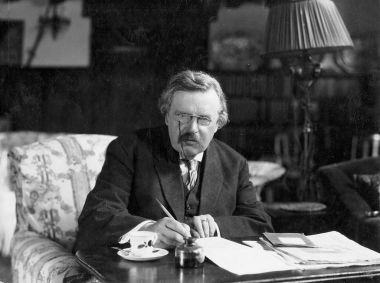Understanding miracles: Does God break the laws of nature?

The scientist was adamant. "I don't believe in God, because I have never met anyone healed in answer to prayer". I was shocked. Not just because it seemed such a strange reason, but also because it was my first public speaking event, after being healed in answer to prayer. I ripped up my prepared speech shook his head and said "You have now!" before going on to tell my story.
I guess many people would say they would believe if they saw a real miracle. But is it that simple?
Firstly we need to define our terms. What is a miracle? The word can be used very lightly. It's a miracle that you got out of bed today...it's a miracle that your football team won (especially if they are Scottish). But that is not what we mean when we talk about a biblical miracle. CS Lewis, whose book Miracles is our apologetic book of the week, explains: "I use the word miracle to mean an interference with nature by a supernatural power."
Could miracles actually happen?
The 17th-century philosopher Blaise Pascal declared: "It is not possible to have reasonable grounds for not believing in miracles." The trouble is the pre-suppositions that one brings to the argument. If you pre-suppose there is no supernatural being then by definition there cannot be miracles. If, on the other hand, you accept the possibility of an almighty God, then miracles are not a problem. As the Westminster Confession of Faith puts it: "God, in his ordinary providence, makes use of means, yet is free to work without, above, and against them, at his pleasure."
At this point the argument could be over. The atheist who says there is no evidence for God, but cannot accept the evidence of miracles because there is no God to perform those miracles, needs a miracle to break out of this circular thinking. The religious person who just accepts that God works miracles finds themselves in the same circular argument and never the twain shall meet.
Is there a way out of this impasse? Yes.

Lewis argues that before you look at the historical evidence for miracles you have to determine philosophically whether they are possible at all. He accuses modern historians and Bible critics of having a cultural bias that precludes them from even allowing for the possibility. In Orthodoxy, GK Chesterton put it beautifully: "The believers in miracles accept them (rightly or wrongly) because they have evidence for them. The disbelievers in miracles deny them (rightly or wrongly) because they have a doctrine against them."
So step one is accepting that miracles are possible. The question then becomes one of evidence.
Did Jesus do miracles?
The evidence for the miracles of Jesus is very strong.
First, we have the historical testimony of the Gospels themselves and the testimony of the early Church. There were many witnesses of these miracles, whether it was the feeding of the 5,000, the 500 who at one time saw the resurrected Christ, or the hundreds who were at the greatest funeral ever, that of Lazarus.
The man who is known as the first of the Christian apologists, Quadratus, addressed the Emperor Hadrian in the year 124 AD with these astonishing words: "Our Saviour's works, moreover, were always present: for they were real, consisting of those who had been healed of their diseases, those who had been raised from the dead; who were not only seen while they were being healed and raised up, but were afterwards constantly present. Nor did they remain only during the sojourn of the Saviour on earth but also a considerable time after His departure; and indeed some of them have survived even down to our own times."
The early Church Fathers were much clearer on this than some church leaders in the 20th century, who, following the fashion of the age, decided that everything could and should be explained in naturalistic terms. Thus Jesus feeding the 5,000 was really Jesus using a small boy to encourage everyone to share their hidden picnic lunches, Lazarus being raised from the dead was really him waking up from a deep coma, and Jesus walking on the water was actually him walking on a sandbank. But a Jesus who did not perform miracles, but only pretended that he did, would not be worth following.
We have then a logical possibility that an almighty God could perform miracles and historical testimony claiming many witnesses that this did happen. However, the biblical case for miracles goes beyond philosophy and history. It also has the ring of truth in terms of its purpose.
Why did Jesus do miracles?
"You are probably quite right in thinking you will never see a miracle done: you are probably equally right in thinking that there was a natural explanation of anything in your past life which seemed, at the first glance, to be 'rum' or 'odd'. God does not shake miracles into nature at random as if from a pepper pot. They come on great occasions; they are found at the great junctions of history – not of political or social history, but of that spiritual history which cannot be fully known by man" (CS Lewis, Miracles).
Contrary to many people's impressions, miracles are not commonplace in the Bible. They are clustered around Moses, Elijah and Elisha and Jesus. Miracles were signs to authenticate the messenger and usher in a new period of God's revelation of himself.
The miraculous deeds of Jesus show us his identity, his kingdom and his character. His identity, because as Peter told the Jews at Pentecost: "Jesus of Nazareth was a man accredited by God to you by miracles, wonders and signs, which God did among you through him, as you yourselves know" (Acts 2:22).
His kingdom, because the signs of the Kingdom were done through him. When John the Baptist asked if he was the one who was to come, Jesus replied: "Go back and report to John what you hear and see: the blind receive sight, the lame walk, those who have leprosy are cured, the deaf hear, the dead are raised and the good news is preached to the poor" (Matthew 11:5). And his character because they demonstrate his love – they were done for the good of people. At the feeding of the 5,000, "Jesus called his disciples to him and said, 'I have compassion for these people; they have already been with me three days and have nothing to eat. I do not want to send them away hungry, or they may collapse on the way.'"
I think it is important that most of the things Jesus did were not miracles. He did many ordinary and extraordinary things as well as miracles. The miracle of the incarnation and the virgin birth is seen more clearly in the fact that Jesus sawed wood, walked through villages and wept at funerals, than it is in the miraculous signs. The miracles were a sign of who He was. They were also a message that tells us about God. Not least that God is love. The greatest miracles of all is surely that Jesus came from the glory of heaven, emptied himself, became a servant, became 'nothing' and lived among us. I rejoice that Jesus showed his power as the Lord of creation by stilling the waves and calming the storm, I rejoice even more that He as the Creator became part of the creation, so that He could deal with the raging storm within, rescue us and restore fallen human beings to be the children of God.
Does he still do miracles?
The question now is, were miracles only for the Gospels? I take my clue from the historian, Luke, who in part two of his account of Christ (what we now know as the Acts of the Apostles) writes: "In my former book, Theophilus, I wrote about all that Jesus began to do and to teach" (Acts 1:1). Note the word 'began'. Jesus began his work and then when he was taken up to heaven, he continues his work through his Spirit working in and through his Church.
Now we need to be careful here. Not everything that claims to be a miracle done in the name of Jesus is. Right now you could switch on cable TV and find numerous Christian channels promising you a miracle. There is always some televangelist announcing that someone has grown his or her leg or been healed of a growth. Very few announce that they have had an amputated arm replaced or a dead person raised. Although there have even been exceptions to that – like Todd Bentley, who in the midst of his revival crusades announced that several people had been raised from the dead but that he was unable to provide verification because of 'patient confidentiality'! I am not arguing for that degree of gullibility. But yes, I do believe that God still answers prayer and yes, sometimes these can be at the level of biblical miracles.
If you are like many people you will sometimes be tempted to think that if only God showed you a miracle then you would believe. I don't think so. Jesus told the story of a rich man who lived in luxury every day and ignored a beggar named Lazarus. He died and in hell he pleaded with Abraham to send Lazarus (who was standing beside Abraham in heaven) to go and warn his brothers, to which Abraham responded: "They have Moses and the Prophets; let them listen to them." The rich man thought that sending Lazarus would be better because he reckoned that if someone from the dead went to them they would repent. And yet Abraham's reply was sobering: "If they do not listen to Moses and the Prophets, they will not be convinced even if someone rises from the dead" (Luke 16:31). The bottom line is if you don't believe what God says in His Word it is unlikely you will believe even if you see a miracle. As Pascal also said: "Miracles do not serve to convert, but to condemn."
There is however one miracle which does serve to convert; the greatest miracle of all. Next week we will consider the miracle of the greatest day in history, the day when history was split in two – the day of the resurrection of Jesus. It's the centre, heart and ultimate proof of the Christian faith. Christ IS alive!
David Robertson is the moderator of the Free Church of Scotland and director of Solas CPC, Dundee. Find out more on his blog and follow him on Twitter @theweeflea.
For more from his apologetics series, click here.











